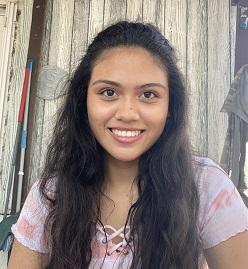How to prepare to study abroad: my financial journey
Liliana Rivera, a US student from Austin, Texas, shares her advice to help other US students find funding and prepare financially to study in another country
Share
When I first became interested in study-abroad programmes, one of my biggest concerns was funding. After my first semester at the University of Texas at Austin, I had heard so many stories from my Korean professor about her students who had studied abroad.
Before attending college, going abroad had not been a goal for me. But as I studied a double major in Asian Studies and Asian Cultures and Languages, with a focus on Korea, I knew that studying abroad would help me become more immersed in my studies.
After completing all the applications, I began to prepare myself financially, in case I was unable to get enough financial aid. I remember being disappointed when I got three scholarship rejection emails back to back, but I didn’t give up. I began saving all the money I could. I learned how to crochet so I could make some money on the side.
I also tried to take into consideration the popularity of the area and the university that I wanted to study at since these processes can be quite competitive and require some prerequisites. For example, my target university, Seoul National University, needed a minimum of 3.0 grade point average (GPA) and one year of college-level Korean.
So here are my tips to help you through this process.
Start those applications
The most effective way to approach finding multiple forms of funding is to organise application deadlines and start applying as soon as possible. Most scholarship applications have deadlines that are due at the same time (or even sooner) than the university application deadlines. I found this out the hard way, so I had lots of cramming and emails to write.
Write down all the deadline dates and keep checking them to make sure you don’t have to cram all your application writing into one week.
Be sure to give yourself time to write your essays, too. Many scholarships will ask for your motivations for studying abroad and why the chosen location will help you with your studies, so prepare to write answers to these questions multiple times.
Another part of your application to prepare is your recommendation letters. Be sure to reach out to your professors with plenty of time to complete them.
Why study abroad? Stories from international students
Video: how to choose which university or country to study in
The best ways to prepare for studying abroad
What documents do I need to study abroad?
Widen your scholarship search
Your university will most likely have scholarships available specifically for study-abroad students. These can be found in the scholarship page of the study-abroad/international studies section of your school’s website. If you happen to be a part of any campus student organisations, they might also have scholarships available for you. I was able to apply for an international study scholarship through my chapter of the Alpha Lambda Delta honor society.
There will be a variety of scholarships available specifically for your country of travel or programme type, or even scholarships to help students develop skills in an additional language. I stuck to the semester-long exchange-programme scholarships, but there are plenty of scholarships for year-long programmes too.
An underused outlet of scholarships can come from your home town. A great place to start searching locally is through churches, grocery stores, utility companies, local businesses and more. I found out that the electric company we have been using at home had a scholarship available for high-school graduates and college students.
Two of the most helpful financial resources for me were FAFSA and the Benjamin A. Gilman International Scholarship. These two scholarships were able to help me fund almost my entire semester abroad. Many scholarships such as these are aimed specifically at students who come from low-income families.
I was able to hear about the Gilman Scholarship through my university’s international office, Texas Global.
This scholarship is especially for students who come from low-income households and offers up to $5,000 to its rewarded applicants. They even offer an additional $3,000 for learning a critical language while abroad.
I was grateful to have this help all around me and I’m so thankful for myself for not giving up when applications and essays were swarming around me. If you do find times tough, talk to your education abroad adviser about your concerns and they can connect you with resources for your mental health and provide tips to resolve your worries.
Studying internationally will set you apart from other students: it will show your ambition and adaptability to live in a new country and continue your education.
